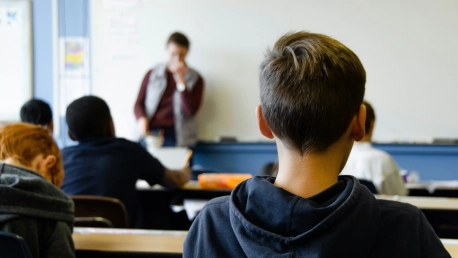As the educational landscape shifts in the United States, K-12 public school teachers are voicing significant worries about the nation’s education quality. Findings from a Pew Research Center study show that these frontline educators are witnessing a decline in American schooling. We investigate their perspectives to understand the causes behind the educational drop-off, the potential future they foresee, and their confidence in political leaders to devise effective educational strategies.At heart, teachers are expressing a mix of concern and dissatisfaction, pointing toward systemic challenges. These difficulties range from curriculum issues to funding woes, and they feel the impact on their ability to teach effectively is profound. Looking ahead, many educators remain uncertain about the direction in which the system is heading, harboring skepticism over whether current political figures can implement meaningful reform. This narrative echoes a deeper national conversation about how best to educate America’s youth and prepare them for an evolving world.
A Disturbing Diagnosis from Educators
The feedback from primary and secondary school teachers across the nation paints a grim picture. An overwhelming 82% believe that the quality of K-12 education has worsened over the past five years, signaling widespread concern about the direction in which the system is heading. Only 5% see an improvement, a stark contrast that underscores issues possibly rooted deep within the system. This pronounced sentiment raises red flags about the current state of education and the obstacles that teachers face from within their own classrooms.Elementary school teachers, in particular, are sounding the alarm on the limitations in resources, with 54% identifying it as a critical issue, more so than their middle and high school counterparts. The disparities highlighted by these educators often indicate where system-level changes could be most beneficial. To comprehend the full magnitude of these challenges, one must consider the diverse and complicated factors affecting the education system, as reported directly by those experiencing them day-to-day.
The Root Causes of Pessimism in Education
The concerns raised by teachers showcase a multiplicity of contributing factors. Around 60% of teachers cite the current political climate as the main cause for the educational decline, while 57% are still contending with the impact of the COVID-19 pandemic on learning and student support. Further compounding these issues is the question of school funding, with a significant number of elementary school educators echoing this point of stress.Looking ahead, educators are not optimistic; over half expect the downward trend to continue over the next five years. This outlook is deeply concerning as it influences not just current strategies but long-term planning and expectations for future generations of students. However, it is notable that there remains a segment of educators, exactly 20%, who maintain some hope for an upswing in the condition of the educational system.
Trust and Politics in the Classroom
Trust in political parties is a significant factor in the classroom, where policies set the stage for educational practices. It appears, however, that this trust is lacking. A notable 42% of teachers distrust both major parties when it comes to determining educational content, signaling a disconnect between those making policies and those implementing them. This skepticism speaks volumes about the perceived efficacy of political involvement in educational matters and the need for policies that truly resonate with classroom realities.Exploring teacher trust further, we find that a third of the teachers have more confidence in the Democratic Party on issues such as school funding, teacher compensation, and ensuring equal access to quality education. Yet, the data reveals an undercurrent of indecision, with a consistent portion of educators either undecided or equally trusting in both parties. This suggests an awareness of the complexities surrounding educational policy and the desire for approaches that transcend party lines.
The Partisan Perspective and Educational Efficacy
Teachers often align with political parties that mirror their beliefs, with most public K-12 teachers in the US leaning Democratic, as per Pew Research Center findings. Despite this, Republican educators display a noteworthy skepticism toward both major parties. This suggests a deeper unease with how politics impacts education, signaling a need for bipartisan approaches focused on student and teacher well-being.Political inclinations shape teachers’ views on educational policies, which is crucial in education discourse and policymaking. As these teachers stand at the intersection of instruction and policy observation, they offer crucial insights into the educational system’s challenges. Advocating for constructive discussions about the future of education, these professionals highlight the importance of a collaborative effort for progress, ensuring the educational system benefits all.









